Symposium #2 Grand Challenges in Data Science and Engineering in Healthcare: Precision Medicine
| February 11, 2021 | 10:00 am – 2:30 pm EST |
| Moderator: Colin Brenan & Ali Tinazli | |
|
|
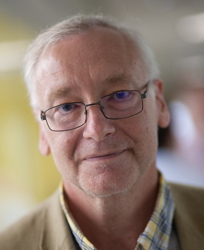
Raimond L. Winslow, Ph.D.
The Johns Hopkins University
Dr. Winslow is the Raj and Neera Singh Professor of Biomedical Engineering, and Founding Director of the Institute for Computational Medicine at Johns Hopkins University. His research is focused on two areas. The first is use of computational modeling to understand the molecular mechanisms of cardiac arrhythmias and sudden death. The second is use of statistical and dynamical systems modeling methods to predict the temporal evolution of patient clinical state. He holds joints appointments in the departments of Electrical and Computer Engineering, Computer Science, and the Division of Health Care Information Sciences at Johns Hopkins University.
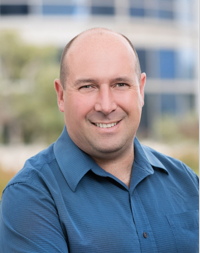
Craig Cummings, Ph.D.
Genentech
Craig Cummings, Ph.D. is the Senior Director and Head of Data Science within Oncology Biomarker Development (OBD) at Genentech. His group is responsible for development and execution of global data analytic strategies in OBD–including bioinformatics, real-world clinico-genomics, liquid biopsies, and digital pathology–to accelerate translational research and drive early and late stage oncology development pipelines.
Prior to joining Genentech, Craig worked at Sequenta where he developed tools for NGS-based minimum residual disease detection in lymphoid cancers and T cell repertoire analysis, and at Applied Biosystems/Life Technologies where he was responsible for pathogen detection assay design and NGS-based microbial genomics applications. As a post-doctoral fellow and research associate in the Stanford University Department of Microbiology and Immunology, Craig investigated Bordetella population genetics and gene expression using microarray-based approaches. He holds a Ph.D. in Genetics from the Stanford University School of Medicine, where he was a HHMI predoctoral fellow, and a B.A. in Biology from the University of Virginia.

Kamala K Maddali DVM, Ph.D.
Deep Lens Inc
Dr. Kamala Maddali is a pharma, diagnostics, and life sciences executive and board advisor with over 20 years of deep expertise in Precision Medicine implementing strategic initiatives across many Fortune 500 companies, most notably Merck and Co., Quintiles, and Quest Diagnostics. She holds a Ph.D. in Pharmacology from the University of Missouri-Columbia and a doctorate in Veterinary Medicine from Tirupati, India. She is a pioneer in the space and a patient advocate, on a mission to help patients with powerful tools from science and innovation for improving global community health. She currently is the Global Vice president for Deep lens inc, an Artificial Intelligence company focused on Precision Medicine, and also serves as an advisory board member for cancer patient advocacies and digital health companies. Her gracious battle as a rare disease patient with MS and Parkinson’s like signs makes her one of the most innovative/empathetic patient and healthcare champions in the precision medicine world.
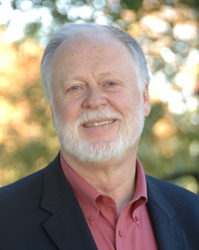
Curtis C. Harris, M.D.
NCI/CCR
Harris received his M.D. from Kansas University School of Medicine. He completed his clinical training at the University of California-Los Angeles, and at the NCI. He has held positions of increasing responsibility at the NCI and is also an Adjunct Professor of Oncology at Georgetown University School of Medicine. Harris has received numerous honors throughout his distinguished career including the Alton Ochsner Award relating Smoking and Health (American College of Physicians), Deichmann Award (International Union of Toxicology), Charles Heidelberger Award (International Society of Gastroenterological Carcinogenesis), the Distinguished Service Medal (the highest honor of the U.S. Public Health Service), NCI Outstanding Mentor Award in 2007 and 2013, Ph.D. (Honorary) Nippon University School of Medicine in 2013. In 2009 he was awarded the AACR-Princess Takamatsu Award, and in 2014 he was awarded the ILCA Nelson Fausto Award, and AACR-American Cancer Society Award for Research Excellence in Cancer Epidemiology and Prevention. In 2016 he was awarded the Distinguished Medical Alumnus Award from Kansas University School of Medicine and in 2020, was awarded the Environmental Mutagenesis and Genome Society Annual Award. He also serves as an honorary member for the Japanese Cancer Association and Fellow at the American Society of Clinical Investigation and AAAS. Harris has published more than 500 journal articles, 100 book chapters, and edited 10 books, and holds more than 30 patents owned by the U.S. Government. He also serves as Editor-in-Chief for the journal, Carcinogenesis, and has held or currently holds elected offices in scholarly societies and non-profit foundations including the American Association of Cancer Research, the International Society of Differentiation, the Keystone Symposia on Molecular and Cellular Biology and the Aspen Cancer Conference. Harris has a wide range of scientific interests and accomplishments spanning molecular genetics and epigenetics of human cancer to molecular epidemiology of human cancer risk and mechanistic biomarkers of cancer diagnosis, prognosis and therapeutic outcome. Harris has a long productive history of investigating the mutation and function of p53. Current investigations include the p53 isoforms involvement in cellular reprogramming and senescence.

Thomas Wilckens, MD
InnVentis Ltd.
Dr. Thomas Wilckens is a medical doctor and a serial entrepreneur. He serves as the CEO of InnVentis Ltd. (Israel), with a focus on the convergence of multi-omics technologies with real-world clinical data and machine learning to enable Precision Medicine. Thomas has app. 29K+ followers @LinkedIn being a recognized thought leader regarding emerging trends, technologies and the convergence of technologies and business models that drive the disruption of healthcare and related industries. Recently Thomas invested in MyBioma, an AI & microbiome Dx & Research company.
Thomas also serves as an advisor to several Diagnostics, Biotech and Pharma companies. In such role he participates in internal workshops, Q&A or strategy meetings at board/SVP level; for example at https://www.medtecheurope.org/ ; more references upon request.
Thomas is also the founder of the LinkedIn group Precision Medicine & Digital Health.
Prior to InnVentis, he was an associate at deep innovation GmbH, a boutique consultancy and spin-off of Vodafone Group R&D Germany serving governments and global player regarding digitization in healthcare and biomedical R&D.
In 1998 he founded a drug discovery company in Munich as CEO/CSO with a focus on inflammatory and metabolic diseases after winning a startup competition.
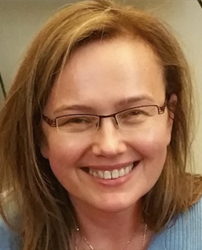
Jadwiga Bienkowska, Ph.D.
Pfizer
Dr. Jadwiga Bienkowska is Sr. Director and Head of Computational Biology at Pfizer, Oncology Research and Development. ORD mission is development of breakthrough therapies for unmet needs of Cancer patients. Mission of the Computational Biology is to decode complex molecular data into data driven decisions to accelerate drug development from new targets discovery and MOA studies, translation of pre-clinical observation to patient selection and progression of new therapies through Phase I trials, and bedside to bench translation of insights from Phase III -IV trials clinical and biomarker data. Dr. Bienkowska has over 20 years of experience in Pharma and Biotech assuming roles of increasing responsibilities and leadership to leverage Data Science and unravel molecular mechanisms of disease, advance new therapies and deliver Precision Medicine to patients. Prior to joining Pfizer Dr. Bienkowska lead a computational biology research groups at BiogenIdec and EMD Serono focused on uncovering molecular drivers and new therapies for Immune and Neurological diseases and Cancer. Dr. Bienkowska holds PhD from the University of Chicago and completed postdoctoral training at Harvard Medical School.

Erin Shellman, Ph.D.
Ginkgo Bioworks, Inc
Dr. Erin Shellman is a technical leader and data scientist with a track record of building high-output, delivery-focused teams. She brings technical depth to all of her work, whether that’s informing company strategy, product development, or building & maturing analytical teams and organizations. She’s passionate about leading product-oriented teams that sustain rapid, incremental deliveries. Effective communication is a core value of all her teams, and they continuously improve their data storytelling through presentations, technical writing, and peer editing. A common thread throughout her career is a focus on teaching and continuous improvement–she loves data science because it demands constant learning and evolution.
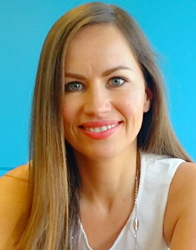
Anita Rogacs, Ph.D.
HP
Dr. Anita Rogacs has done extensive work in the field of microfluidics, analytical chemistry, molecular biology, nanotechnology, plasmonics, and Raman spectroscopy, authoring over 30 publications. Anita received her M.S. and Ph.D in Mechanical Engineering from Stanford University, and has studied business at the Stanford Graduate School of Business. She is a National Science Foundation (NSF) and Sandia National Laboratories Fellow. After receiving her Ph.D., she joined HP’s CTO office and Labs, where she led strategy and the technology development of a broad array of Life Sciences platforms. Today, she is the Scientific Director of New Business Strategy and Incubation, focusing on bringing HP healthcare solutions to the market.